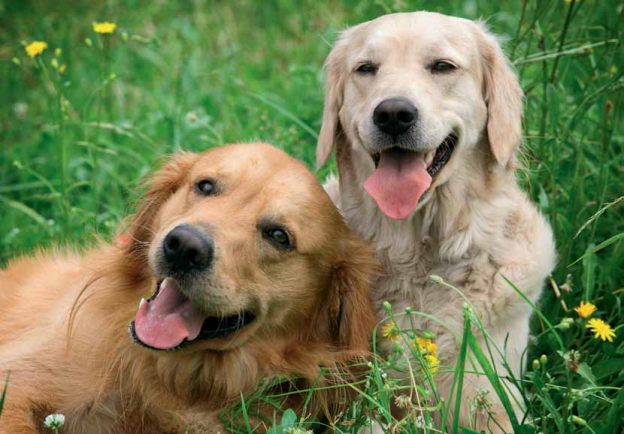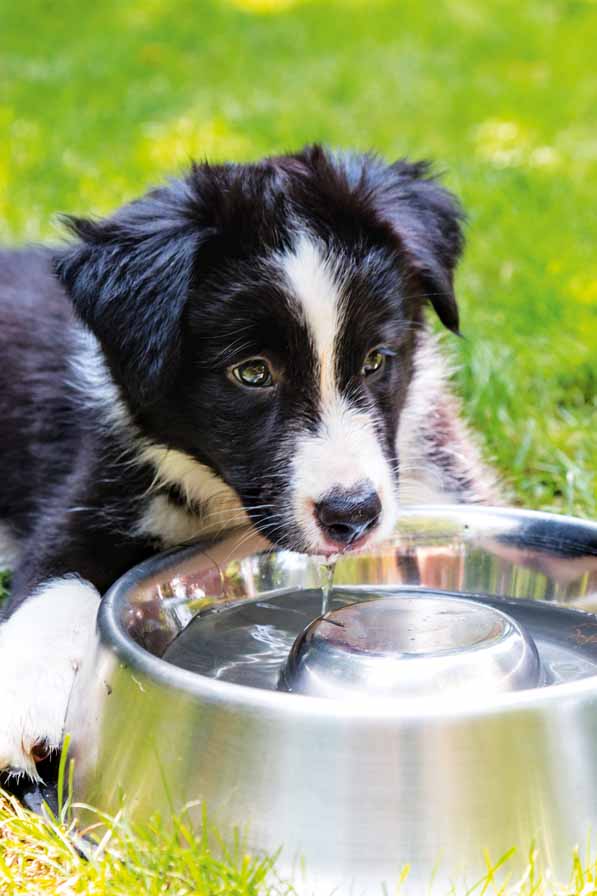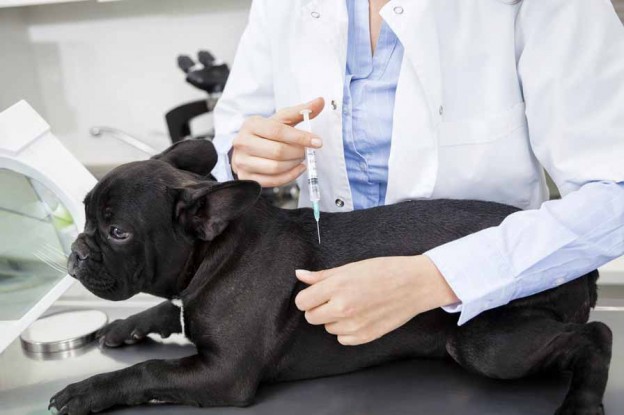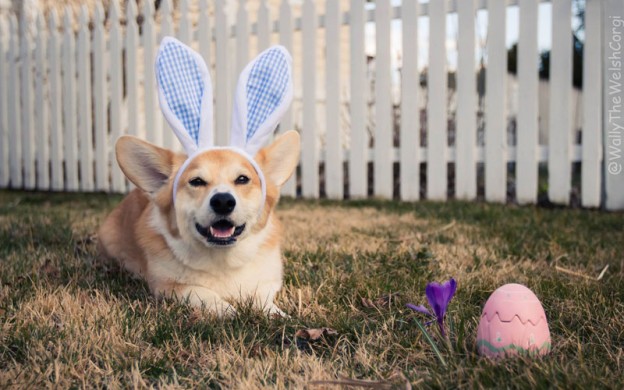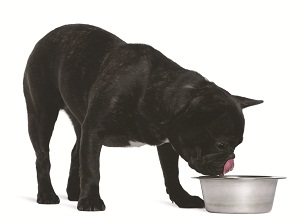
Many dogs have a genetic drive to accumulate food. So why are they such fussy eaters? Caroline Zambrano discovers the reasons behind fussy eating and gets advice from experts for ways to encourage a healthy appetite.
From home-cooked meals to the most expensive dog food on the market, many owners go all out to provide their dog with a healthy diet. But no matter how many hours you slave in the kitchen, or how much money you spend on the best food, your dog may take one sniff and walk away, leaving you astonished and frustrated.
Your dog may be fussy from the day one. Or he may have a healthy appetite and suddenly refuses to eat. Whatever the situation is, your dog is a fussy eater for a reason, said veterinarian Dr Michael Archinal from Canberra and Queanbeyan veterinary hospitals.
Medical causes for fussy eating
Fussy eating is a behavioural problem, normally caused by what we, as owners, have done during that critical period up to 16 to 20 weeks, when dogs are developing their taste preferences, Archinal said.
However, a poor appetite may indicate a more serious medical condition, so it is important to take your dog to the vet for a health check before making any changes to its diet or following behavioural training advice.
Another medical reason for fussy eating is hypothyroidism, a disorder of the thyroid gland (two small butterfly-shaped lobes located in the neck), which is most well-known for regulating your dogs metabolic rate.
In hypothyroidism, the thyroid gland is under-active and unable to secrete enough thyroid hormone, which in turn slows your dogs metabolism, Archinal explained. The thyroid gland controls the metabolic rate. If it is sluggish and does not work properly, your dogs metabolism slows down and it doesn’t lose weight, he said.
Besides having a reduced appetite, symptoms can also include lethargy, obesity, skin and coat problems. Hypothyroidism is manageable, and with successful therapy, your dog is most likely to remain symptom-free for the rest of its life.
Gastric ulcers
Small ulcers in the lining of the stomach can also cause a dog to become a fussy eater. Archinal said his own Labrador, Rosie, had one. It caused her to dramatically slow her eating habit, which was a warning sign.
Archinal said the ulcer was spotted with an endoscope and successfully treated with no relapse. Plus, her appetite has fully recovered.
If your dog has eaten well throughout puppyhood and its adult life, and has recently become fussy with food, you need to also consider mouth-related conditions, Archinal said.
Your fussy eater may be suffering from dental disease, fractured teeth, tooth-root infection or abscesses, which need immediate veterinary attention.
Kidney disease can also decrease appetite, Archinal said. If the kidneys are not functioning well, waste products that are normally excreted through the urine buildup in the blood and can make your pet nauseous, he explained.
Kidney disease may also require a special diet, so veterinary advice is vital during the diagnosis and treatment process.
In addition to diseases, mineral and vitamin deficiencies may also have an impact on eating, as they affect all-round energy, Archinal said.
Besides medical conditions related to fussy eating, dogs also react to certain types of food simply because of the taste.
The smell of certain foods with preservatives may also deter dogs from enjoying their meal. One example is fresh pet meat preserved with sulphur dioxide. This is a naturally occurring and commonly used preservative to extend shelf life and control and prevent the overgrowth of potential pathogenic bacteria, like salmonella and clostridia. However safe it is to eat, your dog may simply not like the smell it creates in the food, Archinal said.
When puppies go through a teething phase between 12 and 20 weeks, they may go off hard food, such as bones, and prefer softer food. But people tend to spoil their puppy with an array of food and create problems later on, Archinal said. With puppies, if you’ve started feeding them dry food, soften the food with water during this period. If you introduced bones into their diet and they go off them, don’t panic. Just reintroduce them every fortnight.
Dog owners create fussy eating
The way we raise our pets plays an important role in shaping their attitude towards eating. Archinal said that often, the owner has actually created the problem of fussy eating.
Besides spoiling our pooches with a selection of foods for them to choose from, we may be adding to the fussy behaviour with incorrect training for instance, not being consistent with training across the whole family.
Everyone in the family thinks they are doing the right thing, but somebody is cheating, Archinal said. We are killing them with kindness.
To encourage eating, dog owners sometimes decide to hand-feed their dog. Dr Archinal remembers one furry patient that would not eat unless it was a certain type of food on a plate, with biscuits on top and a newspaper spread out underneath the plate. The dog came to the vet hospital for treatment and staff members couldn’t feed it unless they specifically followed the feeding routine.
I was staggered at the degree of complexity of this dogs feeding regime, Archinal said. Fussy eating has consequences when animals are left at vets and boarding kennels.
Behavioural and genetic reasons to fussy eating
Dogs Life caught up with animal behaviourist Dr Joanne Righetti to look at behavioural and genetic reasons behind fussy eating.
If your dog always ate well all and suddenly became fussy around the age of three assuming your dog is not suffering from any medical condition the reason could be a change in behavioural hierarchy, especially amongst two or more dogs in one household, Righetti explained. The balance is changing between dogs, as one is becoming more dominant during a period called social maturity, she said.
Sometimes stress has an impact on a dogs eating habit, Righetti said. For instance, dogs can be stressed about being underweight, being adopted from the shelter or adjusting to life with a new baby or pet. Also, some dogs refuse to eat to seek attention from their owners. A change in their diet can also affect their eating habits, Righetti pointed out.
Fussy eating is a problem in dogs of all types and ages, however, Righetti said the problem is more prevalent in certain types of breeds. A bigger proportion of toy dogs and lap dogs have this problem, she said.
Fussy owners may have created the problem, but it can also be because of a dogs genetic disposition. A dogs instinct is to search for food. Toy dogs don’t have the genetic drive to accumulate food. If we breed dogs to be on our laps and have small tummies, then their drive for food may be reduced, she explained.
Whatever the reason, many dog owners are worried their dog will starve to death if they don’t eat. Remember, dogs come from wolves, which can go for many days between kills or scavenged food, so your dogs instinct and survival will take over and he will resume eating when he needs to.
If weight is not an issue and if hes not dehydrated, your dog will eat eventually. Don’t worry about him starving, Righetti said.
Tips for fussy eaters
Once your vet has cleared your fussy eating pooch of any medical conditions, its time to look at ways to encourage a healthy appetite. Righetti shared some tips to help resolve your dogs fussy eating.
- Dont have food out 24 hours a day. Feed twice a day, and if your dog does not eat within 15 minutes, take it away
- Heat food up or add warm water to give it flavour
- If it’s a dry diet, add some water to moisten it
- Add homemade food to enhance flavour.
Righetti encourages checking with the vet before making any dietary changes.
No-nos with fussy eaters
Do not force-feed your dog, Righetti advised. He will associate you with the bad feeling. If you are concerned about your dogs weight, take him to the vet immediately, she said.
Also, don’t stare at your dog while hes eating. You can make the anxiety worse or reinforce the dogs attention-seeking behaviour, she said.
Healthy eating tips
- Make sure each dog has its own bowl.
- Feed each dog at a distance from other dogs.
- Don’t feed your dog old or expired food.
- Don’t leave fresh food sitting in the bowl (dry foods can be left).
- Serve food at room temperature, not out of the fridge.
- Don’t feed your dog scraps while you are sitting at the table.
- Choose a diet appropriate for your dogs needs and calorie requirements.
- Always provide plenty of fresh, clean water.



